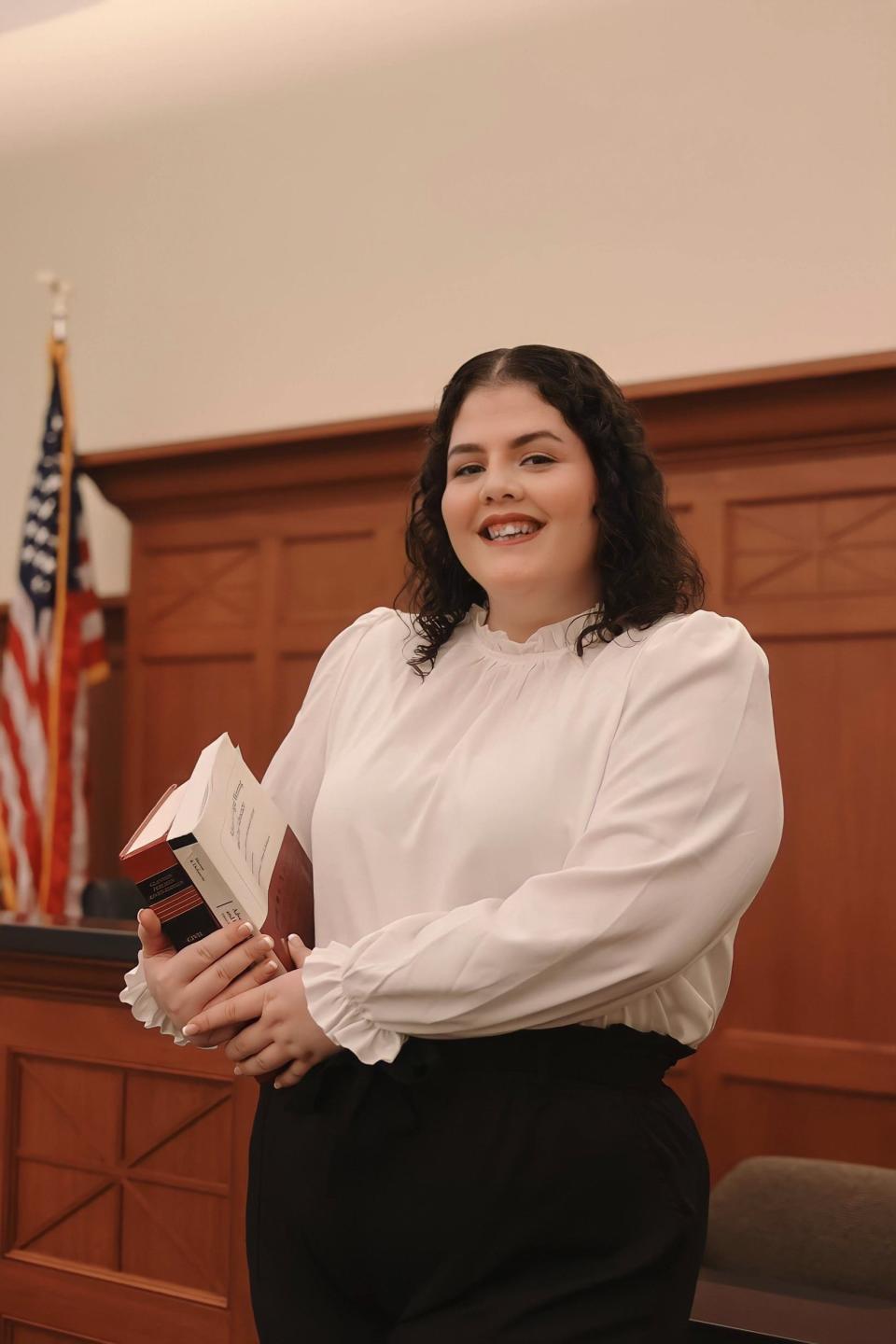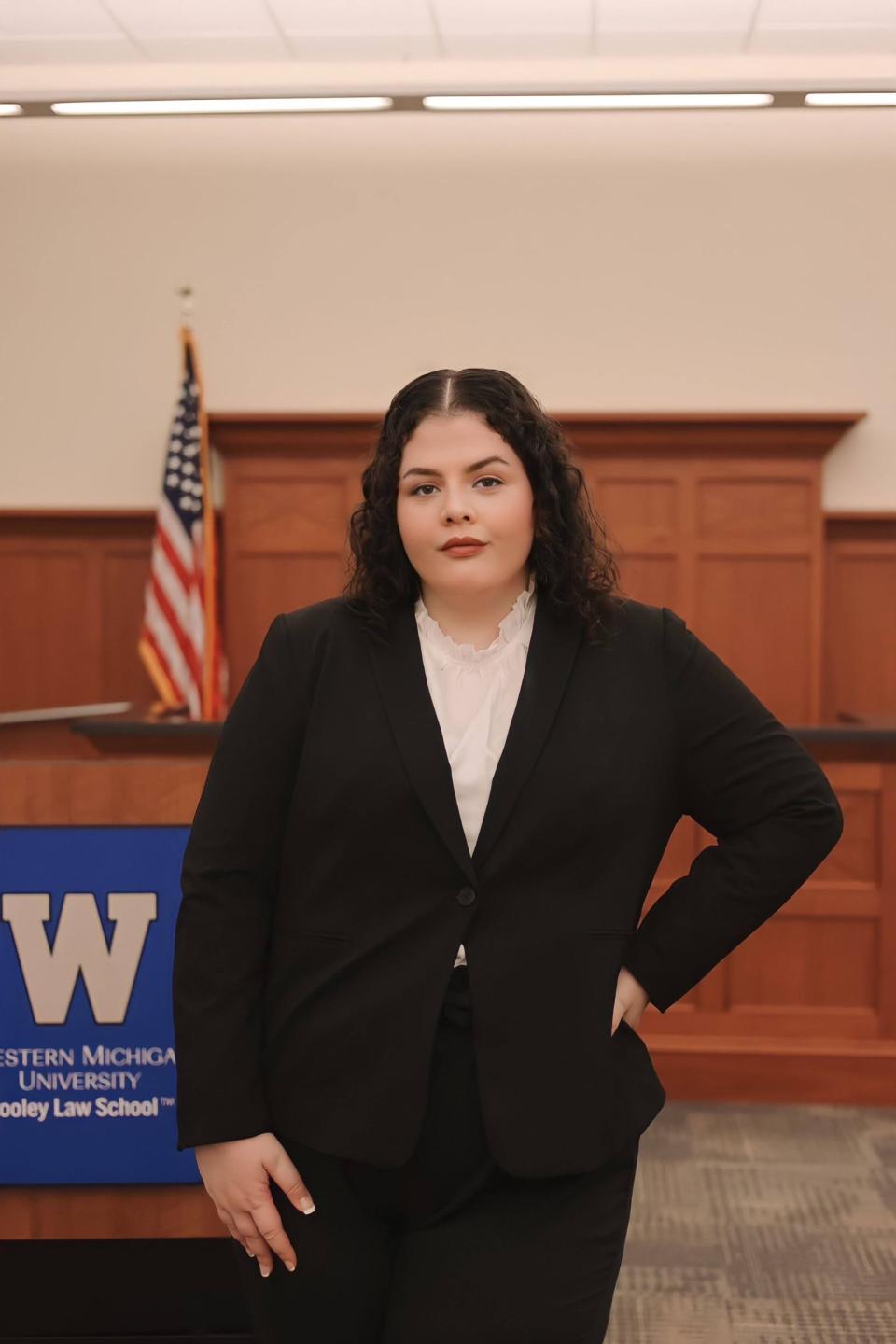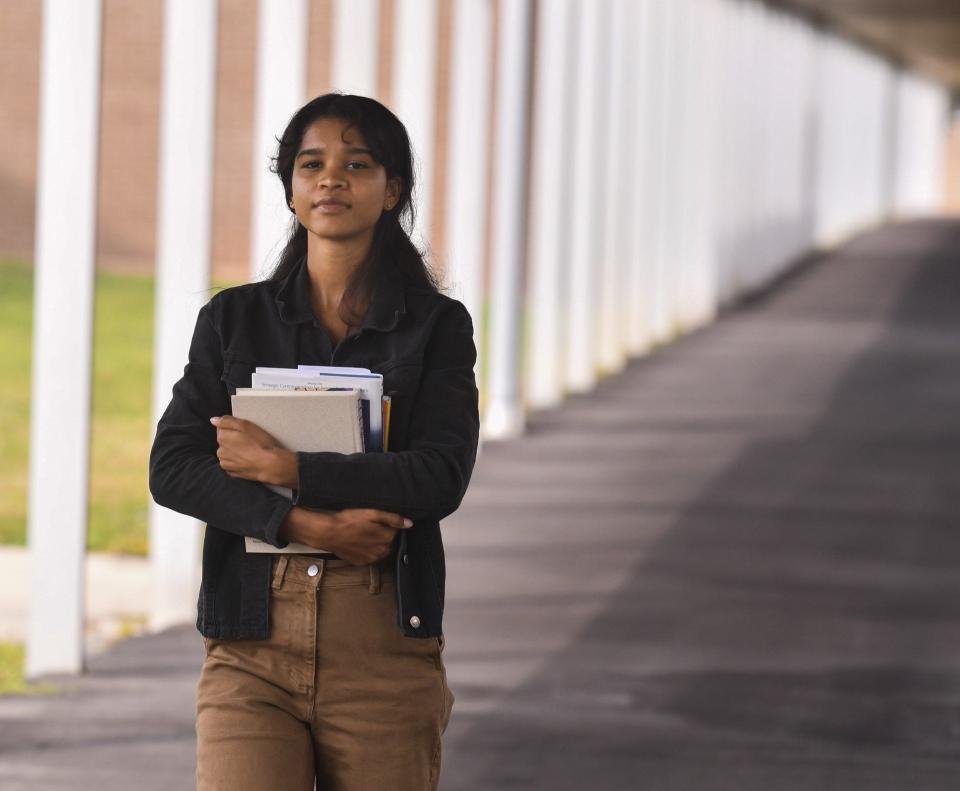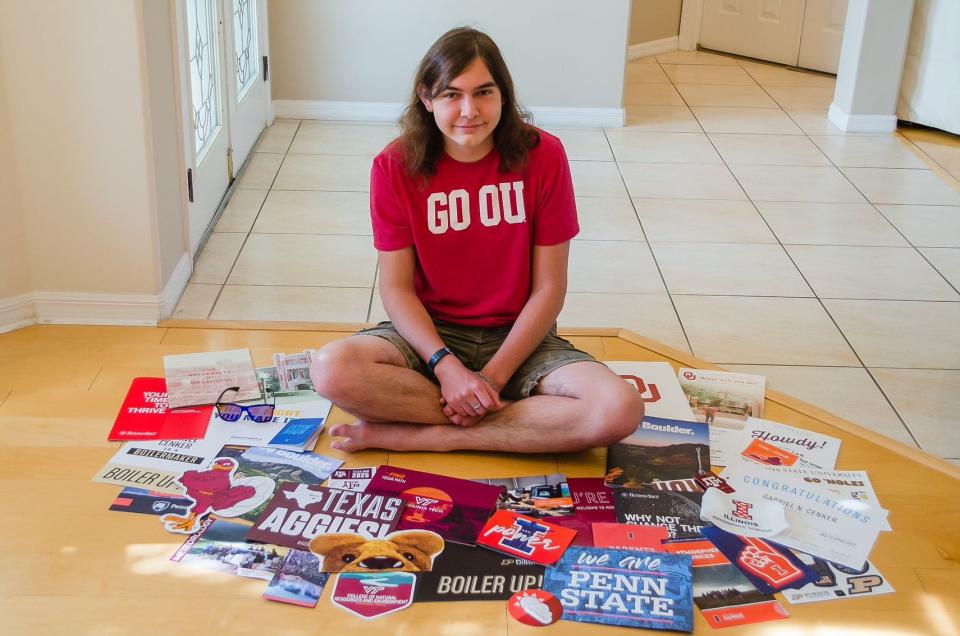Brevard students vie for scholarships. But it's not an easy feat, even for top performers
It was 2020, during the early days of the pandemic. With hopes of earning a degree in public health, Karly Hudson applied for more than 100 scholarships. Some required 1,000 to 2,000-word essay responses to even be considered.
She never heard back from any of them.
"You pour your heart out for this essay to hope to get a thousand-dollar scholarship, and you're just ghosted," she said.

It's not unusual. While a university may offer scholarships, students often need to be accepted before they can be considered. Scholarships from outside sources often require essay responses and may get hundreds to thousands of applicants, generally with no real response ever sent to those not chosen to receive funds.
These opportunities outside of a college or university can be hugely helpful, said James Almasi, Florida Tech’s director of financial aid. But they can also be extremely time-consuming.
"They take a lot of work," Almasi said. "It's sort of like a part-time job, applying for these things."
So what are some of the ways students can try for scholarships?
That depends on many factors.
Many chosen based on merit, though other factors considered
Hudson, a Melbourne resident, considers herself lucky: Though she didn't get scholarships from the numerous places she applied, University of South Florida, now her alma mater, awarded her a scholarship.
It was a scholarship based on merit, meaning the school took Hudson's high school grade-point average, SAT scores and other factors into consideration before awarding her a certain amount of money.

Dispute at school board meeting: 'You are all opening a Pandora's box': Confusion reigns over new Brevard schools vaccine policy
AI in schools: Artificial intelligence: How are technology advances being used in Brevard classrooms?
It's not an unusual kind of scholarship to get. Students looking into the Space Coast's various local postsecondary education opportunities — whether that be at a private institution like Florida Tech, or a public college like Eastern Florida State College, or University of Central Florida — have opportunities to earn scholarships based on their grades and testing scores.
Most students accepted at Florida Tech qualify for a partial scholarship, Almasi said. That amount may vary based on their SAT or ACT scores, as well as their high school GPAs.
"If you're admitted, you'll tend to get something," he said. "The better performer you are, the more you will get."
The true is same for both UCF and Eastern Florida State College students.
And those aren't the only types of scholarships available. The Eastern Florida State College Foundation, a not-for-profit corporation that helps provide financial support for EFSC students, also offers other types of scholarships, working with sponsors and donors to lay out the parameters of each kind of scholarship. While some may be awarded based on test scores, others are given out based on need, degree programs or to first-generation students.

"Donors get to select the criteria and the name of their scholarship," said Tonya Cherry, executive director of the foundation. She added that donors do not select the recipients of scholarships.
"We have a few scholarships that want the average student — the 2.0, the 3.0 — to get the scholarships because they feel like they are the ones that really need it," she said.
The likelihood of receiving a scholarship at any of these schools — and the amount awarded — is highly dependent on how many students apply.
"The competitiveness of scholarships is dependent on a variety of factors including the funding source; the funding amount; the scholarship requirements; and the applicant pool," said Karemah Campbell Manselle, interim director of UCF's office of student financial assistance.
In-state vs. out-of-state tuition struggles
In addition to the scholarship from USF, Hudson also received a partial scholarship from Bright Futures, a program through the state department of education and Florida Lottery that provides funds for eligible students seeking a postsecondary education.
The website boasts that the program has helped more than 950,000 students receive a postsecondary education and provides multiple opportunities for students looking to apply for scholarships: the Florida Academic Scholarship, Florida Medallion Scholarship, Gold Seal Cape Scholarship and Gold Seal Vocational Scholarship. All by the GSC scholarship require a certain GPA and a minimum ACT or SAT score, as well as additional criteria like a certain number of service hours or paid work hours.

While many top-achieving Floridians qualify for Bright Futures, the funds can only go toward in-state schools. Figuring out funding for out-of-state schools can be a challenge.
That's what the Cenker family of Rockledge discovered when Gabe Cenker, now a junior at the University of Oklahoma, graduated from high school in May 2021. Cenker hopes to work in radar/meteorology. His career goals played a big role in his college choice — and in the price tag that came with it.
While he was offered free ride scholarships at Florida State and Embry Riddle, their meteorology programs didn't appeal as much as OU’s, which has a top-flight weather center research facility and is located in the center of "Tornado Alley," said mom Jennifer Cenker.
“We’re not well off, but we do have it slightly better than some others,” Cenker said. “But we are struggling with paying Gabe’s out of state tuition, and have not found many scholarships for families in the upper lower-class or lower middle-class range.”
Outside scholarships, grants supplement university scholarships
Grants are also a way students can access funding. While Florida Tech's current scholarships are merit-based, they'll offer students a chance to receive the Brevard Boundless Opportunity Grant in the fall of 2024. It's a way to make the university more accessible to local students, Almasi said, with eligible students owing the university no money for tuition and fees.
To be eligible, a student must live in Brevard, complete the FAFSA and be federal Pell Grant-eligible, qualify for the Florida Academic Scholarship or the Florida Medallion Scholarship through Bright Futures and apply and be admitted to Florida Tech by May 1.
There are also scholarships awarded to individuals of certain races, gender identities or other marginalized experiences.
Hudson is currently attending Cooley Law School in Tampa, where she won a scholarship through an ambassador program for diversity, equity and inclusion. It's a dream come true, and something she wouldn't be able to do if she hadn't gotten scholarships during her undergraduate schooling.
"I have no debt from undergrad," she said. "So I was like, 'Well, taking out the debt for law school isn't going to be so bad,' because I had all of my undergrad paid for."

As for Gabe Cenker, he won an Award of Excellence Scholarship from the University of Oklahoma, which pays $64,000 spread over the course of four years. Additionally, he was awarded a $1,000 scholarship just this past month in honor of Paul Samaras at the National Storm Chaser Summit.
“He probably spent half of his Christmas break filling out scholarship applications. I lost track of how many he applied to,” Cenker said. “He got word that he won that Paul Samaras one, and then got one from the OU Honors College for $2,000 to be used for his summer abroad at Oxford.”
Scholarships can help prevent life-long debt
Scholarships are one way to keep students from incurring massive debt through loans.
While President Joe Biden had canceled about $138 billion in federal student loan debt as of this month, according to the U.S. Department of Education, the total federal student loan debt still equals about $1.6 trillion.
The Cenkers “never in a million years” thought it would be so hard to find scholarship money for a young man who is in an honors program and an honors scholars fraternity and currently has a cumulative 3.81GPA. Even with his scholarships, the cost for an undergrad living on campus still comes out to about $53,000 a year. This meant his parents needed to co-sign loans for him.
It’s worth all the struggle, Jennifer Cenker said, and the search for scholarships continues.
“I can’t imagine the number of kids who are missing out because of the high costs and then not being able to earn a scholarship,” Cenker said. “So he is lucky in that we will figure out how to cover everything, even if we have to sell our home and downsize or whatever.”
For many Eastern Florida students, scholarships are the reason they can attend school, Cherry said.

"They all apply for federal financial aid, but not everybody qualifies for that, and even if they do ... tuition and books are not the only cost associated with going to college," she said, adding that many EFSC students have families and may struggle to go to school full-time. "I think that our scholarship program benefits the community at large because it empowers them to pursue their dreams ... to ensure that we are building a community that is successful."
Hudson is attending law school with no debt from her undergraduate schooling thanks to the scholarships she received. She felt comfortable taking out loans for law school because of that lack of debt, and because she believed she would receive scholarships once she enrolled.
What fees aren't covered by the ambassador program scholarship — and the merit-based scholarship she was awarded based on her class rank that covers 40% of her schooling — she'll pay back through the federal public service loan forgiveness program. The program forgives the remaining balance on a student's direct loans after they make 120 monthly payments while working in a qualifying job.
"I graduate in 2025; I'll be 24," Hudson said. "So what? (I'll be) 34, and I was a public defender for 10 years. All of my loans will be forgiven; I'm debt-free by 34."
Finch Walker is the education reporter at FLORIDA TODAY. Contact Walker at 321-290-4744 or fwalker@floridatoday.com. X: @_finchwalker.
This article originally appeared on Florida Today: Snaring scholarships is hard: How do Brevard students pay for college?

